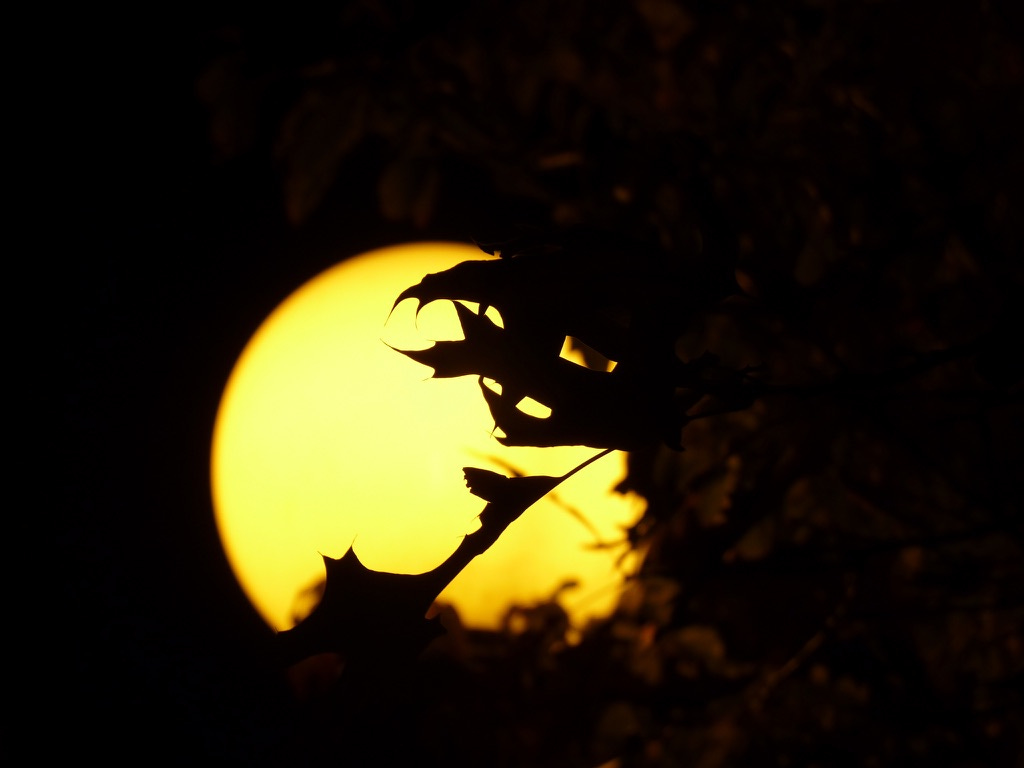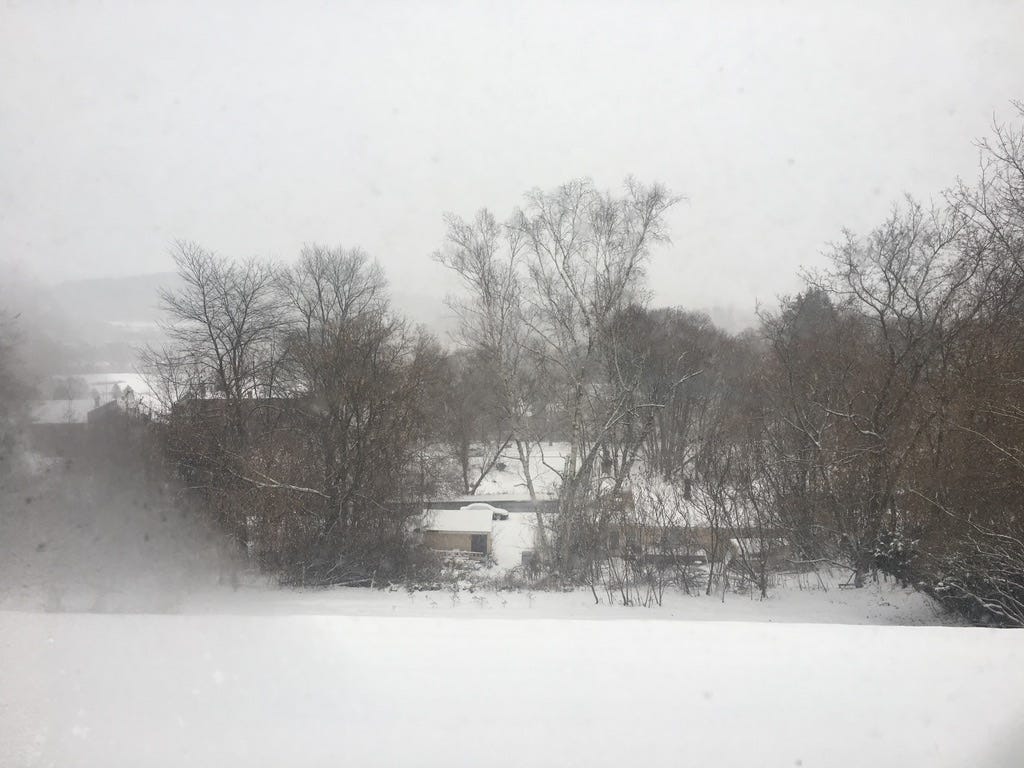Place Poem: "December Moon" by May Sarton
And some wintry place picks for your consideration
Everyone I know is sick, and not in a fun way. Everyone you know is probably also sick. Flu, common cold, COVID, RSV—like apps you can’t delete off your phone because you inadvertently agreed to terms and conditions that obligated them to exist, we’ve got a series of winter illnesses that shows up everywhere, no matter how hard you try to turn away. My own lingering cough won’t escape me, two weeks after the cold has dispersed. It’s just part of being a person now, apparently.
So we’re inside, for the most part—recuperating, hydrating, and ingesting a lifetime’s worth of DayQuil. So many of us, so unlikely to witness the chill of the December daytime, much less the bitter frost of December nights. But as May Sarton advises us today, the deepest cold nights have more to offer us than we think.
December Moon
by May Sarton
Snow silence fills my head After I leave the window. Hours later near dawn When I look down again The whole landscape has changed The perfect surface gone Criss-crossed and written on Where the wild creatures ranged While the moon rose and shone. Why did my dog not bark? Why did I hear no sound There on the snow-locked ground In the tumultuous dark? How much can come, how much can go When the December moon is bright, What worlds of play we'll never know Sleeping away the cold white night After a fall of snow.
We have a classic winter poem here, with all the markings. Snow, contemplation, slowness, a “tumultuous dark” that forces us to rethink the happenings of the past year. In that rethinking, May Sarton motivates us here to ask some hard questions during a time of change and renewal. What can come and go?
Most importantly, she asks a question that can reasonably be asked any night of the year: what on earth happened while I was asleep? The question, Sarton acknowledges, is even more poignant in the winter months, since falling snow has a dampening effect that apparently settles all things while we snooze, even if nightmares are raging in our heads.1 All of us who live in snowy areas know this effect intimately: wake up and step outside in the early morning after a hard snow, and what do you hear?
N o t h i n g. Not a sound. The cars can’t drive, the plows aren’t out yet. The “falling” (such a hard word) being done by the snow has never felt so slow and soft. You can hear the lightest whisper from someone standing yards away, like a naturally-occurring NPR recording booth.
And yet, “how much can come” in the midst of such muted noise? How on earth could my dog not bark at the landscape of “wild creatures” roaming in the snowy night, despite his world-ending freakout that occurs when the FedEx man has the audacity to leave a small package on our front porch? I’ve been having a ton of trouble sleeping lately, and I don’t hear any of these shenanigans that surely do happen in the night; though it’s probably for the better—the shenanigans inside my brain are enough. What happens outside my walls in the dead of night, as snow blankets my neighborhood, is mostly a mystery, and maybe it should stay that way.
Still, there’s a weird, fractious joy of waking up in the morning to an entirely new world—one several inches taller, and several times quieter, than the one you left behind the night before. “The whole landscape has changed,” not just from the snow, but from the creatures of the night who can stand it, who even luxuriate in it, and who in the quiet have felt the freedom to let loose under the bright December moon. Acknowledging the change, appreciating it, loving it, is the only reasonable way forward, regardless of the war raging on in our heads.
It’s grading weekend before the semester ends, and I am completely exhausted, so I only have one place pick this week: the very tunes I’ll be enjoying while deciding whether ChatGPT did or did not write my students’ final papers.
Music
“New Snow / Klippen efter Fritz Broden” Frida Johansson (Apple Music / Spotify).
This may be my most obscure Music pick yet, mainly because this piece can pretty much only be found organically in the Unravel video game series. If you are someone who plays video games—and frankly, even if you aren’t—I’d recommend both Unravel and Unravel Two, both of which are visually stunning and emotionally affecting adventures for all senses.
The music, however, is what makes these games what they are. As the names of the composers likely give away, this is instrumental music of the Scandanavian variety, featuring badass instruments like the nyckelharpa. If anything should puncture your never-ending stream of Christmas carols over the next couple weeks, it should be this brand of instrumentals, particularly as in-the-background music while you work. If the snow weren’t so silent in Scandanavia, you could practically hear it falling behind the track.
And if this selection from the Unravel series floats your boat, Väsen might be a strong next step for you:
One final note: yesterday, I hit my first big milestone in this little adventure with my 100th subscriber! I’ve been writing these posts each week without a break, for free, for three months… and it feels as good as any work I’ve ever done. I am so thrilled to have the support of a dedicated set of readers, and cannot wait to expand it into newer and more interesting places in 2024. I have a few interesting (to me, anyway) posts in the queue for the next few weeks, so I hope you’ll stay tuned while I figure out what’s next.
Like the one I had last night where some former roommate of mine publicized all my Substack drafts before they were ready. I don’t need to say who it was; you know what you did.





Nyckelharpa!
Congratulations on your milestone, Charlie. I'm sure your efforts will be rewarded with more followers in 2024. The poem by May Sarton is rather wonderful. I like poems of this length, they're very accessible.